2019 Summer Faculty Reading List
Barbara Babcock, Judge John Crown Professor of Law, Emerita, recommends First: Sandra Day O’Connor by Evan Thomas and Ruth Bader Ginsburg, A Life by Jane Sherron de Hart.

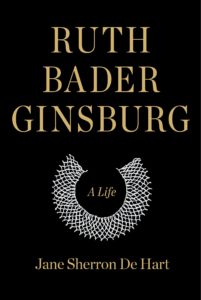
“Never before have major biographies of women U.S. Supreme Court Justices been published almost simultaneously. Nor have any two Justices shared so many life features, e.g. extremely supportive spouses. No biographies of Supreme Court Justices say as little as either of these does about the judicial philosophy of its subject. Neither book was written by a legal scholar, (one was by a well-known journalist, the other by a feminist historian). In short, there is nothing like either. Without expecting it, I found both fascinating and recommend them highly to lawyers and non-lawyers alike.”
Rabia Belt, Associate Professor of Law, recommends Roll of Thunder Hear My Cry and Let the Circle Be Unbroken by Mildred Taylor.
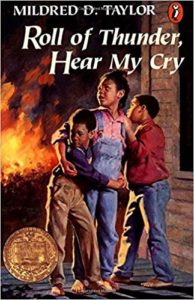
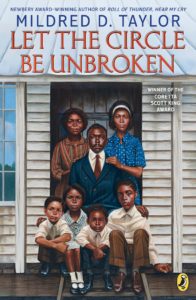
“This year I taught a seminar on the History of Civil Rights Law for the first time. As I was preparing the syllabus, I marveled that so many of the themes of the class I encountered for the first time in Mildred Taylor’s Roll of Thunder Hear My Cry and the sequel, Let the Circle Be Unbroken. Both books tell the saga of the Logan family as they struggle to hold onto their land and their dignity in southern Mississippi during the Great Depression and Jim Crow era. Although they are fictional, the stories are deeply true. Both are masterpieces. I have carried them with me for decades. If you have kids of middle school age, please give them these books. If you haven’t read them yourself, now is the time.”
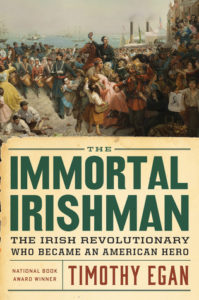
John Donohue, C. Wendell and Edith M. Carlsmith Professor of Law, recommends The Immortal Irishman: The Irish Revolutionary Who Became an American Hero by Timothy Egan.
“This is the amazing story of Thomas Francis Meagher who led a failed uprising against British rule during the Great Famine of the 1840s. First sentenced to death and then banished to an Australian prison colony, Meagher escaped and became a revolutionary hero in New York during the great Irish immigration to America (which prompted similar reactions of nativist anger to what we see today).
“Seeing the fight against slavery as part of the larger battle against all injustice, Meagher became an important ally of Abraham Lincoln and led the newly formed Irish Brigade from New York in some of the fiercest battles of the Civil War. In return for his service, he was appointed the territorial governor of Montana, where he continued his fight for due process of law in a lawless land.”
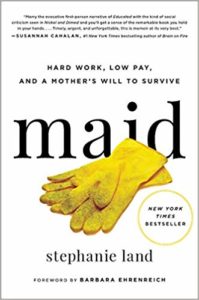
Nora Freeman Engstrom, Professor of Law and Deane F. Johnson Faculty Scholar, recommends Maid: Hard Work, Low Pay, and a Mother’s Will to Survive by Stephanie Land.
“Something of a mash up of Cheryl Strayed’s Wild and Barbara Ehrenreich’s Nickel and Dimed, Stephanie Land’s debut memoir, Maid: Hard Work, Low Pay, and a Mother’s Will to Survive, is a gem. It’s both a page-turner and a moving meditation on contemporary poverty in the United States.”
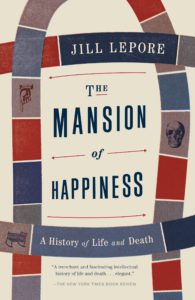
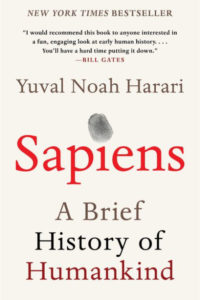
Lawrence Friedman, Marion Rice Kirkwood Professor of Law, recommends The Mansion of Happiness: A History of Life and Death by Jill Lepore and Sapiens by Yuval Harari.
“I’d like to add Jill Lepore’s quirky but fascinating book, The Mansion of Happiness, with the subtitle, A History of Life and Death. This ranges from board games to cryogenics, a wise, funny, and offbeat book. I thoroughly enjoyed it.
“I’d also like to recommend Sapiens, by Yuval Harari – an amazing, and superbly readable history of…us, the human species.”
Robert W. Gordon, Professor of Law, recommends Bloodlands: Europe Between Hitler and Stalin by Timothy Snyder and The Neon Rain by James Lee Burke.
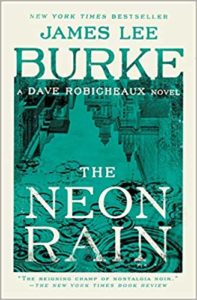
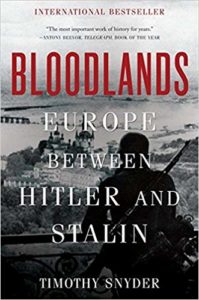
“Between 1933 and 1945, the Nazi and Soviet regimes – one driven by ferocious racial hatred, the other by the fanatical conviction that it knew the direction of history – murdered some 14 million people. (This count does not include soldiers under arms.) Even readers already familiar with the scale of this appalling carnage can learn a lot from Snyder’s history, which breathes life into the numbers by recording many of the victims’ own thoughts, feelings, and narratives.
“Fans of noir mysteries can’t – in my view – do better than to try out the novels of James Lee Burke, set in coastal Louisiana, and featuring casts of memorable grotesques like sadistic gangsters, drug dealers, corrupt cops, cruel prison wardens, and, of course, hard-boiled but sympathetic heroes, notably Dave Robicheaux. (Burke’s daughter Alafair is an SLS graduate and a fine mystery writer in her own right.) If you don’t know these novels a good place to start is with The Neon Rain.”
Hank Greely, Deane F. and Kate Edelman John Professor of Law, recommends the Broken Earth trilogy (The Fifth Season, The Obelisk Gate, The Stone Sky) by N.K. Jemisin, American Ulysses: A Life of Ulysses S. Grant by Ronald White, and Our Man: Richard Holbrooke and the End of the American Century by George Packer.
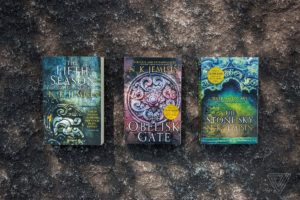
“This summer I’ll recommend one science fiction trilogy and one – well, probably two – biographies.
“The science fiction trilogy is N.K. Jemisin’s Broken Earth trilogy. I am not going out on a limb here. Each of the three books won the Hugo Award for best science fiction novel, back to back to back. No one had ever done that before. For me, good science fiction or fantasy (and most other fiction as well) is a mix of four things: characters you care about (positively or negatively), an interesting story, a well thought out and surprising world, and some deeper implications. The books of the Broken Earth trilogy – The Fifth Season, The Obelisk Gate, and The Stone Sky – meet all four criteria glowingly. I was particularly intrigued with the world Jemisin created. It took me several hundred pages to begin to figure it out but, as a true Californian, I was pleased by the importance to it of seismology and plate tectonics. It’s just a wonderful series.
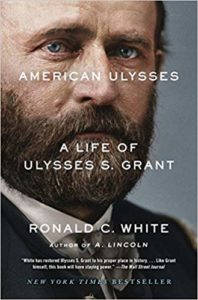
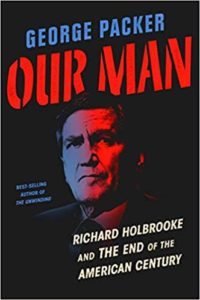
“The biography I definitely recommend is Ronald White’s, American Ulysses: A Life of Ulysses S. Grant. I learned much more than I ever had known about Grant and emerged with a much higher opinion of him as a man, though not a very much higher appreciation of him as a president. The book is well written and detailed. I liked it quite a lot. Note – there is another, more prominent Grant biography: Ron Chernow’s Grant. From the reviews, from a little skimming, and from my experience with Chernow’s Hamilton biography, it seems to me more political, with intended resonance with today’s politics that I mistrust.
“The biography I do not, yet, completely recommend is George Packer’s new book, Our Man: Richard Holbrooke and the End of the American Century. I cannot fully recommend it because I am only about 20 percent through its 500 plus pages, but, so far, I like it very much. The author, the son of the law school’s late Herb Packer and English Department’s Nancy Packer, has a great voice and makes Holbrooke, and the era in which he was active (a large part of my politically conscious life), come alive.”
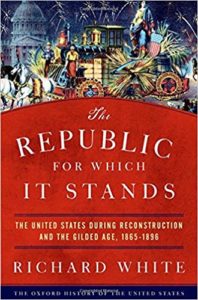
Lisa Larrimore Ouellette, Associate Professor of Law and Justin M. Roach, Jr. Faculty Scholar, recommends Behave: The Biology of Humans at Our Best and Worst by Robert M. Sapolsky, The Republic for Which It Stands: The United States During Reconstruction and the Gilded Age, 1865-1896 by Richard White, and Barrel-Aged Stout and Selling Out: Goose Island, Anheuser-Busch, and How Craft Beer Became Big Business by Josh Noel.
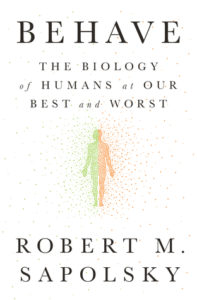
“One can certainly quibble with aspects of Behave, such as the repeated uncritical references to the study claiming to show that Israeli parole boards handed out harsher sentences before lunch. But it is a highly entertaining synthesis of an incredible amount of material, with a thesis that has radical implications for our criminal justice system.
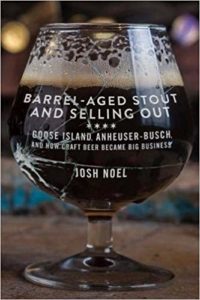
“Greg Ablavsky already recommended The Republic for Which It Stands in the last roundup, but I can attest that it is not just for historians—it was an engaging introduction to an era I knew little about. I was particularly drawn to the description of the social changes wrought by disruptive technological innovation, which has been helpful for thinking about the impact of modern innovations on employment and inequality.
“I read Barrel-Aged Stout and Selling Out on the recommendation of my frequent coauthor Daniel Hemel, and I enjoyed it enough that I’ve bought more copies as gifts for beer-loving friends. But it is not just a book for beer aficionados. Josh Noel’s extended musings on whether all that matters is what’s in the bottle or whether it also matters who owns it will provide plenty of interesting discussion fodder for antitrust lawyers and others interested in applying a public welfare analysis to the structure of an industry heavily shaped by consumer tastes.”
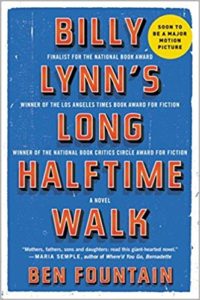
Mitch Polinsky, Josephine Scott Crocker Professor of Law and Economics, recommends Billy Lynn’s Long Halftime Walk Ben Fountain.
“Highly recommend Billy Lynn’s Long Halftime Walk by Ben Fountain. It’s a humorous, touching, satirical war novel. About a platoon of battle-seasoned young soldiers brought home for a two-week “victory tour” in the U.S. before being shipped back to Iraq. Brilliant writing in my opinion. Won National Book Critics Circle Award for Fiction and was a finalist for the National Book Award.”

Deborah Rhode, E.W. McFarland Professor of Law and Director of the Center on the Legal Profession, recommends Our Man: Richard Holbrooke and the End of the American Century by George Packer.
“I recommend George Packer’s biography of Richard Holbrooke, Our Man. Holbrooke was a high level diplomat involved in peace negotiations in Viet Nam, Bosnia, and Afghanistan. He was also one of the most transparently ambitious Washington insiders of his era, which is a high bar. Packer is a superb writer, and masterfully captures the complexities of Holbrooke’s character and contributions. It’s an excellent read even if you don’t have a deep interest in Hobrooke’s role in the negotiations.”
Deborah A. Sivas, Luke W. Cole Professor of Environmental Law and Director of the Environmental and Natural Resources Law and Policy Program, recommends The Road to Unfreedom: Russia, Europe, America by Timothy Snyder and How Democracies Die by Steven Levitsky and Daniel Ziblatt.
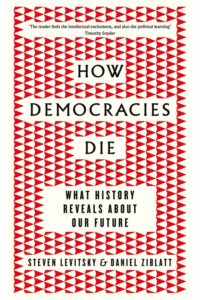
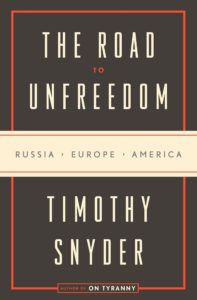
“I am a few steps behind the many intriguing new political science books published in 2018, but I just finished a pair that are worth reading together: Yale History Professor Timothy Snyder’s The Road to Unfreedom and Harvard Professors of Government Steven Levitsky and Daniel Ziblatt’s How Democracies Die. Both books are comparative explorations on the darkening path to authoritarianism around the world, including in the United States, as the norms of post-World War II liberal democracies break down. It was particularly poignant to be reading these books on the 75th anniversary of the Normandy invasion. While the two books come at the central question from different disciplines and with different perspectives, they arrive at remarkably similar and unsettling conclusions about where we sit in the trajectory of modern human history and how the deliberate or careless choices we make today will have far-reaching implications for generations to come.”
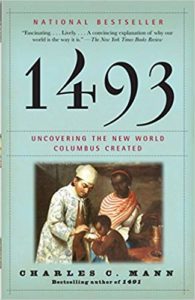
Diego Zambrano, Assistant Professor of Law, recommends Seeing like a State: How Certain Schemes to Improve the Human Condition Have Failed by James Scott, 1493: Uncovering the New World Columbus Created by Charles Mann, and The New Geography of Jobs by Enrico Moretti.
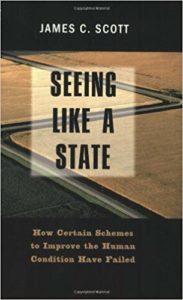
“James Scott, Seeing like a State. This book involves a set of rich stories with many lessons for lawyers and reformers. First, the importance of epistemic humility. The book brilliantly retells the many ways reformers have ignored the complexity of human systems and value of local knowledge, with disastrous results. Second, the relevance of aesthetics (especially in the context of city planning). Third, the role of the state (and taxation) in building many of our most basic legal structures.
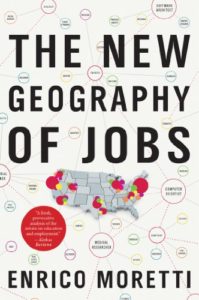
“Charles Mann, 1493: Uncovering the New World Columbus Created. A vast and rich story of ecological change wrought by European colonization of the Americas. You can learn about the Potosi silver mines, the guano and rubber trades, Inca farming, malaria, and the importance of sweet potatoes to Sichuan province.
“Enrico Moretti, The New Geography of Jobs. Essential reading if you’d like to understand the way our economy works and the importance of knowledge clusters.”
